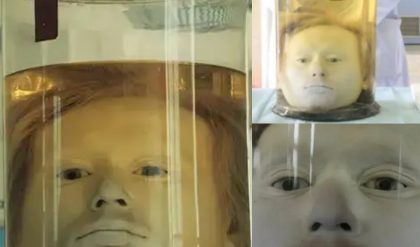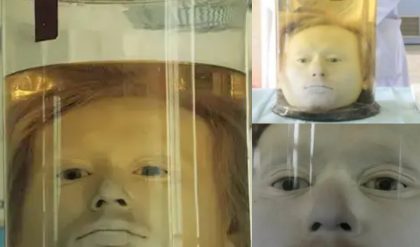In a groundbreaking discovery that has sent shockwaves through the scientific community and the world of ufology, researchers have announced the finding of nine alien fossils that could potentially alter our understanding of life beyond Earth. These extraordinary fossils, unearthed during a recent excavation, have sparked debates about extraterrestrial biology and the implications for humanity.
The Discovery
The alien fossils were discovered in a remote region of the Atacama Desert in Chile, an area known for its harsh conditions and unique geological formations. A team of international scientists, led by Dr. Maria Gonzalez, stumbled upon the fossils while investigating unusual rock formations that had previously been thought to be mere geological anomalies.
Characteristics of the Fossils
The nine fossils exhibit features unlike any known terrestrial organisms. Preliminary analysis suggests that they possess unique cellular structures and biochemical compositions that challenge existing theories of life. Some of the most striking characteristics include:
- Unusual Morphology: The fossils display complex, multi-chambered structures that resemble neither plant nor animal life as we know it.
- Bioluminescence: Some fossils exhibit signs of bioluminescent properties, suggesting they may have adapted to their environment in ways previously thought impossible.
- Unique Chemical Signatures: Initial tests reveal that the fossils contain elements and compounds not typically found in terrestrial life forms.

Expert Reactions
The announcement has ignited a flurry of excitement and skepticism within the scientific community. Dr. Robert Lin, an astrobiologist, stated, “If these fossils are indeed of extraterrestrial origin, it would fundamentally change our understanding of life in the universe. We need to proceed with caution and conduct thorough analyses.”
The Implications for Humanity
The potential discovery of alien fossils raises profound questions about the existence of life beyond Earth. If these fossils are confirmed to be extraterrestrial, they could provide invaluable insights into the conditions necessary for life and the possibility of similar organisms existing elsewhere in the universe.
Historical Context
Throughout history, claims of alien discoveries have often met with skepticism and controversy. However, this discovery stands apart due to the rigor of the scientific process and the credibility of the research team involved. The fossils add to the growing body of evidence pointing toward the possibility of life beyond our planet.

Public Reaction
News of the discovery has gone viral, drawing significant attention on social media and news outlets worldwide. Many people are expressing excitement about the implications for humanity, while others remain cautious, calling for more evidence before jumping to conclusions.
Conclusion
The discovery of nine alien fossils in the Atacama Desert presents an unthinkable possibility: that life beyond Earth may have existed and left traces in the form of these extraordinary specimens. As researchers continue to analyze the fossils, the world waits with bated breath for answers that could reshape our understanding of life, evolution, and our place in the universe. The journey into the unknown has just begun, and the implications of this discovery are nothing short of monumental.






